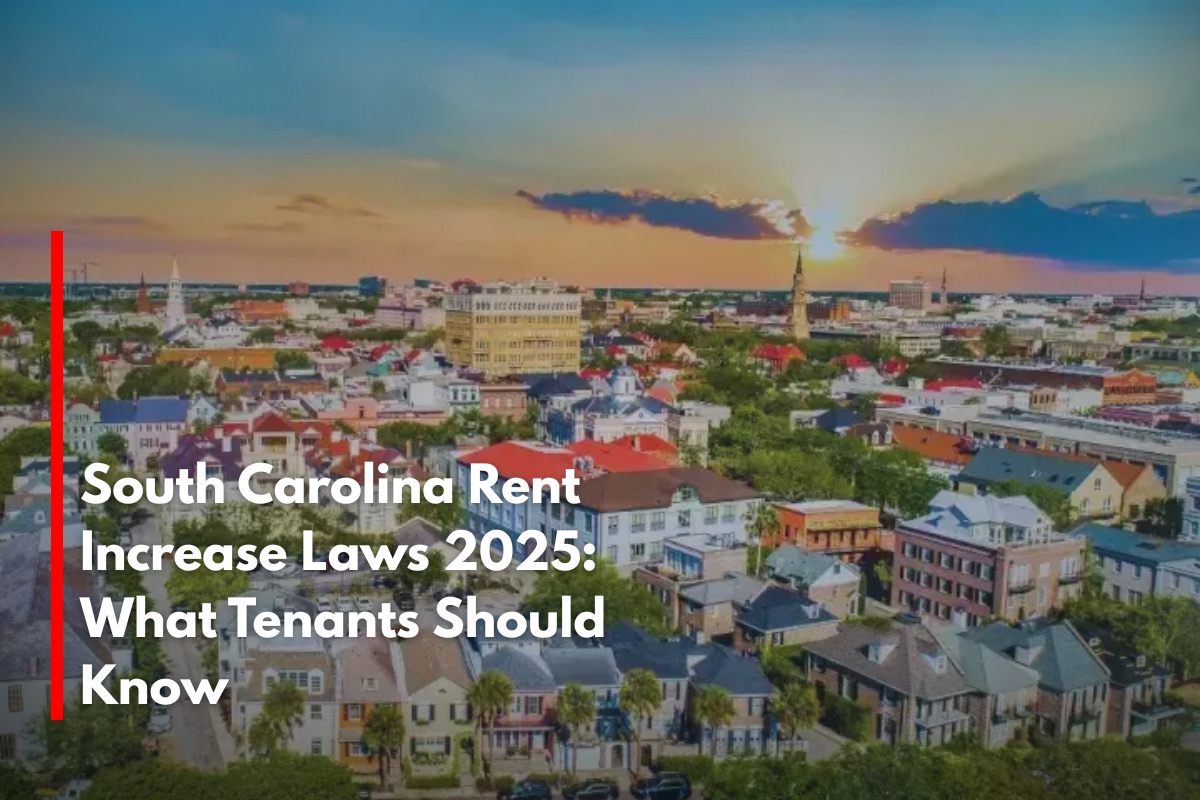Rent increases are a vital concern for tenants in South Carolina as housing costs rise worldwide. Understanding the state’s legal framework around rent hikes helps tenants protect their rights and plan their housing budgets.
While South Carolina does not yet have broad statewide rent control measures, several laws shape how and when landlords can raise rent in 2025. This article outlines key tenant protections, landlord obligations, and practical tips for navigating rent increases across South Carolina.
No Rent Increase in the First Lease Year
South Carolina law prohibits landlords from raising the rent during the first 12 months of a lease or rental agreement. This provision guarantees stability for new tenants and prevents landlords from imposing immediate hikes. Whether the lease is fixed-term or month-to-month, the rent must remain at the agreed initial rate for the full first year.
Frequency of Rent Increases Limited to Annually
After the initial year, landlords may raise rent but only once every 12 months. This limit applies regardless of lease type—fixed-term, month-to-month, or otherwise. The 12-month cycle starts either from the lease start date or the last rent increase date if one has occurred. Attempts to raise rent more than once within this period are unlawful and tenants can take legal action to contest such increases.
Notice Requirements for Rent Increases
Landlords must provide written notice before implementing any rent increase. For leases lasting a year or more, South Carolina law requires at least 90 days’ notice ahead of the lease renewal date. For week-to-week rental agreements, written notice of rent changes must be given at least seven days prior. Verbal notices do not fulfill legal requirements.
The notice must specify the new rent amount and the date it takes effect. Failure to provide proper notice can render the rent increase invalid and give tenants grounds to challenge the landlord’s actions.
Proposed Bill: Rent Control Act 2025
South Carolina has seen recent legislative efforts such as the Rent Control Act (Bill 3264) aiming to place limits on rent hikes to make housing more affordable. The bill proposes:
Capping annual rent increases to 7% plus the Consumer Price Index (CPI)
Allowing only one rent increase per year after the first lease year
Requiring 90 days written notice before any increases
Though not yet law, this bill reflects growing political momentum to curb excessive rent hikes and stabilize housing costs for tenants across the state.
Penalties for Unlawful Rent Increases
Landlords who illegally raise rents, such as increasing rent more than once a year or without proper notice, face legal penalties. Tenants can sue for damages amounting to three times the illegally charged rent plus attorney fees. The law strongly encourages landlords to follow rent increase procedures to avoid costly disputes.
Exceptions to Rent Control Laws
Certain housing types are often exempt from rent control restrictions, including:
Newly constructed properties built within the last 15 years
Properties subsidized by rental assistance programs
Short-term vacation rentals or leases less than 30 days
Tenants in these categories should review their lease agreements and applicable laws carefully.
Tips for Tenants Facing Rent Increases
Review your lease to understand rent terms and allowed increases
Request written notice of any rent increase and keep records
Ensure your landlord adheres to proper timing and notice rules
Negotiate if you feel the increase is unreasonable or seek alternative housing
Consult tenant rights organizations or an attorney if you suspect illegal rent hikes
South Carolina currently lacks mandatory statewide rent control but mandates fair timing and notice procedures to protect tenants. Rent cannot be increased during the first year of tenancy, and thereafter only once annually with 90 days written notice is required. Proposed legislation may introduce limits on percentage increases, but for now, landlords have significant discretion within these guidelines.
Tenants benefit by staying informed, understanding their lease terms, and exercising legal rights to contest improper rent hikes. Proactive communication and knowledge help ensure rental housing remains stable and affordable in South Carolina throughout 2025 and beyond.
Sources
(https://www.scstatehouse.gov/sess126_2025-2026/bills/3346.htm)
(https://www.hemlane.com/resources/south-carolina-rent-control-laws/)
(https://www.steadily.com/blog/how-much-can-a-landlord-raise-rent-in-south-carolina)
(https://www.scstatehouse.gov/code/t27c040.php)
(https://www.boloforms.com/signature/contracts/real-estate/notice-of-rent-increase/south-carolina/)











